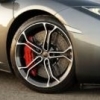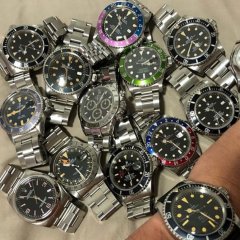Search the Community
Showing results for tags 'cash'.
-
Customer Buys Honda Motorbike With Coins Only & Salesgirls Take 20 Minutes To Count It All https://says.com/my/fun/customer-buys-motorbike-with-coins-only-salesgirls-20-minutes-count?fbclid=IwAR1R4nwjybHoXY0EQmxl3CFXfSyOcvtHNydpJ6Dv7LkWfFC1TRa8ZHrYgfY "We're happy to count them all for no additional charge!" By Wayne Garreth — 04 Oct 2022, 03:01 PM Penny for your thoughts? A recent purchase made at a motorbike store in Thailand has gone viral for a rather unbelievable reason. Akhom Charoen Honda Motorcycles, a motorcycle shop located in the province of Chon Buri in Eastern Thailand, published a photo to their Facebook page on 25 September of their employees sitting on the ground counting coins. "Guess how many coins there are?" the beginning of the caption for the photo read. "The customer told me he saved up every day to buy the [Honda] PCX160 in cash! Excellent! We enjoyed counting." Yeah, you guessed that right. One person paid for an entire new motorbike for himself using just coins. The employees of Akhom Charoen Honda Motorcycles counting coins for the purchase of the Honda PCX160. It was later revealed that the employees of Akhom Charoen counted a whopping THB102,500 (approximately RM12,577) in coins In a conversation with Thai digital media platform, Sanook, a sales representative of the motorcycle store, who goes by Suwanna Chunram, stated that the customer had called them earlier to ask if he could pay for the PCX160 using coins, to which she said yes. The customer then came in on the afternoon of 25 September carrying two boxes of coins for the staff to count. Chunram had called on more staff members to work that day to assist in counting all the coins. On top of that, it was reported that the employees only took 20 minutes to count all of the THB102,500 (RM12,577) and a separate registration fee However, it was also stated that the purchaser had already segregated his coins to small bags of THB100 (approximately RM12) within the boxes. According to Chunram, no customer has ever made an entire purchase that big in the store's history. The closest they had was a down payment made for a bike which amounted to THB1,500 (approximately RM185) in coins, though the remainder was not. Regardless of the method of payment, Chunram also stated that all customers are welcome to present their money to be counted by the staff, without any deductions or additional charges for the effort. The unnamed customer with his new Honda PCX160.
- 23 replies
-
- 5
-

-
.png)
-
- cash
- paid full in cash
-
(and 1 more)
Tagged with:
-
https://asia.nikkei.com/Economy/Inflation/Singapore-Malaysia-Indonesia-unleash-cash-to-ease-inflation-bite?utm_campaign=GL_asia_daily&utm_medium=email&utm_source=NA_newsletter&utm_content=article_link&del_type=1&pub_date=20220706123000&seq_num=2&si=44594 Singapore, Malaysia, Indonesia unleash cash to ease inflation bite Governments attempt to balance political pressures with fiscal discipline A woman shops at a supermarket in Singapore. Food prices have surged in Southeast Asia. (Photo by Takashi Nakano) TAKASHI NAKANO, Nikkei staff writerJuly 6, 2022 04:34 JST SINGAPORE -- Southeast Asian governments have started to roll out another round of economic relief packages to help citizens stay afloat in difficult economic times, but this time the funding is targeting the fallout from inflation instead of COVID-19. Across the region, people are struggling to make ends meet as the Ukraine war as well as persistent supply chain disruptions have driven up the prices of everyday items. With several countries getting ready to hold elections in the next 18 months, officials have made moves to disperse cash before people vote with their wallets. Singapore has announced a stimulus measure worth 1.5 billion Singapore dollars ($1.07 billion) that assists households and small businesses. Individuals earning SG$34,000 or less a year will receive as much as SG$300 in August. Taxi drivers and couriers struggling with high fuel prices will receive payments between SG$150 and SG$300. All households will also receive a SG$100 utility credit. In addition, the government will provide financial subsidies for small and midsized food manufacturers and retailers that adopt fuel-efficient equipment. In Malaysia, Prime Minister Ismail Sabri Yaakob said households in the bottom 40% income bracket will receive payments of 100 ringgit ($22.65) while individuals in that same bracket will receive 50-ringgit payments. Relief payments will total 630 million ringgit, benefiting 8.6 million people. The government also froze hikes on electricity and water fees on June 24. The Thai government has granted a three-month extension to ongoing relief measures, which will now run until September. Assistance includes cooking gas subsidies for low-income people. In Indonesia, the cash payments are being directed to roughly 20 million households and 2.5 million street food vendors in response to surging cooking oil prices. These measures come amid historically high inflation rates. Thailand's consumer prices rose 7.66% in June from a year earlier, marking a 14-year high. Singapore's consumer prices in May jumped 5.6%, the fastest pace in more than 10 years. "The support measures in this package are tilted toward helping our lower-income and vulnerable groups, because they are the ones who are disproportionately impacted by the effects of inflation," Lawrence Wong, Singapore's minister of finance and deputy prime minister, said when announcing the support package last month. There is also a political wrinkle to the relief measures. Malaysia and Thailand will hold general elections by the end of 2023. Governments often take the blame for inflation and the lower quality of living that can come with it. Malaysian Prime Minister Ismail Sabri said last month that the price caps on chicken that were due to expire in July will be kept in place to "safeguard the interests" of the Malaysian people. In Singapore, Wong has been appointed as the successor of the current Prime Minister Lee Hsien Loong. As such, Wong is leading the relief rollout. "You have my word that if the situation worsens significantly, we will be prepared to do more, especially to provide targeted help for the lower-income groups," Wong told lawmakers on Monday. However, the additional relief packages risk damaging national finances already strained by the pandemic response. Some countries have already begun to show signs of lax fiscal discipline. Last year, Thailand raised the cap on government debt to 70% of gross domestic product from 60%. That same year, Malaysia raised the debt ceiling to 65% of GDP from 60%. "Southeast Asian countries have relatively low shares of debt that are denominated in foreign currencies, so there will be no problems in terms of short-term funding," said Hiromasa Matsuura, senior economist at Mizuho Research & Technologies. "However, interest rates are expected to rise, so care needs to be taken toward additional fiscal burdens." The Thai baht has sunk to a five-and-a-half-year low against the U.S. dollar. Concerns over economic stagnation caused by inflation, as well as over deteriorating fiscal conditions, could lead to a weaker currency and accelerated capital outflows. Singapore plans to fund its SG$1.5 billion economic relief package with additional tax revenue. The government has committed to go ahead with plans to hike the national sales tax on next year and in 2024, despite inflationary pressures. According to Malaysia's 2023 budget proposal released last month, the financial subsidies will not be universal. Instead, the government is set to take a "more targeted approach" that focuses on vulnerable income level groups. A prolong conflict between Russia and Ukraine may lead to long-term high food and energy prices. Those least able to weather these trends are becoming increasingly impatient. "A single cash payment is not going to erase my struggles," said Latifah Ismaill, a janitor in Singapore.
-
https://edition.cnn.com/2022/06/23/economy/china-bank-runs-protests-intl-mic-hnk/index.html Small banks in China are running into trouble. Savers could lose everything By Laura He, CNN Business Updated 0305 GMT (1105 HKT) June 24, 2022 Hong Kong (CNN Business)Peter had put his life savings of about $6 million into accounts at three small banks in China's central Henan province. He says he hasn't been able to access them since April. The 45-year-old entrepreneur asked us to call him Peter for security reasons. He's from the eastern city of Wenzhou and is just one of thousands of depositors who have been fighting to recover their savings from at least six banks in rural provinces in central China. "I'm close to having a nervous breakdown. I can't sleep," Peter told CNN Business. When he tried to access his accounts online, a statement would pop up on the homepage informing him that the website was under maintenance and services would be unavailable for a while, Peter told CNN Business. Two months later, those services have not been restored. The trouble began in April, when four banks in Henan suspended cash withdrawals. In China, local banks are only permitted to obtain deposits from their home customer base, but authorities say that "third-party platforms" were used to acquire funds from depositors outside the region. In Peter's case, for example, his hometown is over 700 miles away from the banks in Henan. The national banking regulator has accused a major shareholder of the four banks of illegally attracting money from savers. "Henan New Fortune Group, a shareholder of the four village banks, has illegally absorbed the public's funds through internal and external collusion, the use of third-party platforms, and fund brokers," the China Banking and Insurance Regulatory Commission told state-run Xinhua News Agency in May. Depositors protest in front of the Henan branch of the China Banking and Insurance Regulatory Commission, demanding their money back after their funds were frozen. "The police have opened a case for investigation into the matter," it added. Runs on small Chinese banks have become more frequent in recent years and some have been accused of financial improprieties or corruption. But experts worry that a much bigger financial problem could be looming, caused by fallout from a real estate crash and soaring bad debts related to the Covid-19 pandemic. There are no official estimates yet on the total amount of funds that bank depositors are unable to withdraw. CNN Business did not receive a comment from the local police or the national banking regulator. As many as 400,000 banking customers across China were unable to access their savings, according to an estimate in April by Sanlian Lifeweek, a state-owned magazine. That's a drop in the ocean of China's vast banking system, but about a quarter of the industry's total assets are held by around 4,000 small lenders, which often have opaque ownership and governance structures and are more vulnerable to corruption, say experts, and the sharp economic slowdown. "The scope of the bank scandals where bank officials embezzle and steal funds from depositors is alarming, and what is exposed could only be the tip of the iceberg," said Frank Xie, a professor at University of South Carolina Aiken who studies Chinese business and the economy. "As the Chinese economy slows down further, the fiscal shortage worsens, and the debt repayments become more widespread among Chinese companies, especially in the real estate sector, bank runs could become more often and on a larger scale," he said. Many savers have had enough. Late last month, hundreds of depositors traveled to Zhengzhou, the capital of Henan, to protest outside the office of the banking regulator and to demand their money back, to no avail. Another protest was planned in June. But as the depositors arrived in Zhengzhou, they were stunned to find that their health codes — which were green upon departure — had turned red, according to six people who spoke with CNN and social media posts. Anyone with a red code — usually assigned to people infected with Covid or deemed by authorities to be at high risk of infection — immediately becomes persona non grata. They are banned from all public venues and transport and are often subject to weeks of government quarantine. CNN has reached out to the Zhengzhou government for comment. The Henan Provincial Health Commission told state-run news website thepaper.cn it was "investigating and verifying" the complaints from depositors who received red codes. What's behind the problem in Henan In Henan, the China Banking and Insurance Regulatory Commission has put the blame on the private investment firm that holds large stakes in all four lenders. Last week, the Henan police said that a criminal gang headed by the investment firm's controller "has been suspected of using village banks to commit serious crimes." Police say several suspects have been arrested. The Henan New Fortune Group no longer has a website. CNN tried to reach the company for comment on the phone and by email without success. The company has made no public statements and it's believed to have been annulled. Later on Monday, the four Henan banks said they would start collecting information from customers who have been affected by the shutdown of their online transaction systems. The move was required by financial regulators, the banks added in separate statements on their website, without elaborating further. That's of little comfort to the banks' customers. Deposits up to 500,000 yuan (almost $75,000) are guaranteed in the event of bank failures, but that's not enough for some — like Peter — and if the government's investigation finds that their savings are "non-compliant" transactions, they could lose everything. "I'm quite worried about how they [authorities] are going to deal with our money," said Ye, who asked CNN Business to only use his surname. Ye is a 30-year old tech worker from the city of Dongguan in Guangdong province — about 1500 km (900 miles) from the banks he used in Henan. He said he has a total of 160,000 yuan (about $24,000) worth of deposits with them. "We were told by the banks that the deposit products were legal, and that they were protected by the deposit insurance scheme," he said. "We just want to get our money back." The four banks — Yuzhou Xinminsheng Village Bank, Shangcai Huimin County Bank, Zhecheng Huanghuai Community Bank, New Oriental Country Bank of Kaifeng — have not replied to requests for comment. Risky liabilities In early 2021, Beijing banned banks from selling deposit products via third party online platforms, fearing that the rapid expansion of the fintech sector could increase risks in the wider financial system. The People's Bank of China called such practices "illegal financial activities." So why were small local banks in Henan apparently ignoring the ban and raising deposits from savers — like Ye, who live on the other side of the country? China's national banking and insurance regulator says third party online platforms allowed them to bypass these geographical restrictions and grow their business nationwide. In the Henan case, various state-run media are reporting that the deposit products were sold via platforms affiliated with, or owned by, giants of China's tech scene such as Baidu (BIDU) and JD.com. (JD) Those platforms — Du Xiaoman Financial, which is the financial affiliate of Baidu, as well as JD Finance — have not responded to requests for comment. "The central government regulators seem to be incapable of enforcing those regulations aimed at preventing this kind of bank run from occurring," said Frank Xie, the Chinese economy expert. He added that corruption was "rampant" at local levels of financial institutions. "Perpetrators such as the person stealing millions from the depositors often get shielded by accomplices in governments and in the upper-level management of the banks," Xie said. "The core problem is that China's financial system simply expanded far too fast relative to the size of the economy over the previous decade," said Logan Wright, director of China markets research at Rhodium Group. China's banking sector has increased sixfold in size since 2008, with total assets reaching over $50 trillion, according to government statistics. The funding structure of small lenders also makes them more risky, say experts. Compared with big banks, they are more reliant on deposits for funding. Many of them offer high interest rates to attract commercial and interbank deposits. But as the slowing economy means borrowers struggle to repay the banks, it becomes difficult for them to deliver the returns they offered savers. "The funding structure of liabilities in many of China's mostly smaller and regional banks is most likely still vulnerable to deposit runs, lender caution, and deteriorating economic performance and rising unemployment," said George Magnus, an associate at the China Centre at Oxford University and former chief economist at UBS. Deteriorating financial health The Henan crisis arrived at a time when public confidence in China's banking system was already waning. In the past decade, Beijing has been clamping down on "shadow banking" activities — which means unregulated, off-the-book lending by financial institutions — on worries that most of the funds had been diverted to property developers and local government infrastructure projects, leading to a rapid run-up in debt and growing financial risks. In 2019, China seized control of Baoshang Bank, based in Inner Mongolia, citing serious credit risks posed by the lender. It was the first bank seizure in China in more than 20 years and the lender was declared bankrupt. The following year, there were at least five bank runs at small lenders, mostly triggered by public fears following reports of financial distress at the banks or anti-graft investigations into bank executives. "Financial institutions are still grappling with some of the losses that have resulted, particularly in China's northeast, central provinces, and western regions, where shadow banking activities had expanded the fastest over the past decade," Wright said. Making matters worse, "the ongoing slowdowns in the economy during the Covid-19 pandemic have further exposed financial institutions to new credit risks as well," Wright added. Spillover effects Investors are closely watching the government's investigation into the Henan bank run. Analysts are gauging possible spillover effects to other banks. "The economy is a key reason why affected banks might be experiencing difficulties, and it is quite possible that other banks will be affected, perhaps even larger banks, given that the fate of the property market and real estate prices hang in the balance," said Magnus from Oxford University. The Chinese economy has been struggling with the country's zero-Covid policy. Many cities have been placed under full or partial lockdowns since March, wreaking havoc on activity. Analysts are worried that the economy could contract in the second quarter. "This could have multiplier effects given that real estate as an asset class could be compromised now for a few years," Magnus said. China's gigantic real estate sector, which accounts for as much as 30% of its GDP, is in a worsening downturn. Sales by the country's top 100 developers collapsed 59% in May from a year ago, according to a recent survey by property research firm Cric China. Evergrande — one of the country's biggest developers — is undergoing a huge restructuring after it defaulted on its debts late last year. Analysts have long feared Evergrande's collapse could have ripple effects across the property industry and spill over to the financial system. Property loans accounts for nearly 30% of outstanding loans with China's financial institutions. Analysts aren't yet worrying about a financial crisis — because the PBOC is likely to ensure that larger and systemically more important banks are protected. But the discontent triggered by the bank runs could be a major concern for the government. When Covid health codes of depositors turned red early last week, derailing a planned protest in Zhengzhou, it sparked a massive outcry on social media. "Now (the authorities) can stop you from petitioning by directly putting digital shackles on you, aka giving you red codes," said one comment on Weibo, China's Twitter-like platform. Dozens of depositors were taken into a quarantine hotel guarded by police and local officials, before being sent away on trains bound for their hometowns the next day; others were "quarantined" at several other locations in the city, including a college campus, according to the witnesses and online posts. "Many people lost their lifetime savings because of this and [if] more incidences like this takes place, and [if] a bank run is met with a government crackdown, social unrest will be the only end result," Xie said.
-
I have a question. It seems the auto top-up works OK if I pass through an ERP when the card value is low. But when I tried to exit a car park gantry, the card doesn't auto top-up and I was stuck up having to swap to a standard cashcard before I can exit. Any idea why? It happened twice so far. Once was at Tanjong Pagar Centre and another at a standard HDB exit gantry. Both have those scan and go type, no need to manual insert. If anybody uses this have some idea what's going on, I would appreciate it if you tell me. Thanks.
- 2 replies
-
- hyundai
- hyundaicontactless
-
(and 7 more)
Tagged with:
-
I don't think this question has ever been asked in this forum before. I am wondering how many here have a million cash in the bank now (not CPF) with the house they are living in now (hdb or private) fully paid and with zero debt? Please note that I am not talking about those sitting on paper assets as some bros here will probably say they can liquidate this and that property to have x millions, I am talking about those debtless people with a million cash in the bank now. If you are in this category, it would be interesting to hear what do you plan to do with your cash in the next couple of years?
- 244 replies
-
- cash rich
- million dollars
-
(and 7 more)
Tagged with:
-
http://stomp.straitstimes.com/singapore-seen/fire-at-serangoon-north-flat-owner-and-family-fled-barefoot-10k-cash-in-safe-burnt-to just wondering, why would anyone keep so much cash at home ?? I don't even have $100 at home ...well, maybe in coins ... the other day the gas man came and changed my gas regulator(due outdated) ... $90 ... had to ask him to come back another day after paying for the gas tank only ... my wallet also have lesser than $20 ... I am trying to go cashless ...
-
Sharing. Today I met this driver, in front of my car, upon exit gantry at one of the shopping mall, that he held up so many people as he has insufficient cash card. He was so unreasonable as he wanted to reverse and i have to reverse and the cars behind me all have to reverse. He said that he has the right to do so , so that he can top up the card. Hence i make it a point to have a spare cash card so that in such a situation I can use it. Such inconsiderate driver he was .
- 83 replies
-
- 2
-

-
- insufficient
- cash
-
(and 3 more)
Tagged with:
-
between a Nets cash card and a Nets Flash card. I use a Nets Flash Card in the payment thingy on my car windscreen and for some reason a few car parks won't accept it and I keep getting the message 'place card in reader' or something. Other car parks accept the Flash card no problem.
-
Anyone finding? $50,000—sponsored by OCBC Pay Anyone—is now hidden and waiting to be found in the sunny island known as Singapore. 3 daily hints will be released on this album from 10am to 6pm until it has been found. You can find a real-time update on the status of the missing mouse at sqkii.com/huntthemouse. https://www.facebook.com/pg/sqkii/photos/?tab=album&album_id=1478995472158859
-
there is pay cash ... and there is pay cash ... lol if i go Hour Glass and buy gold rolie with 24 months 0% interest is "unsecured credit" right? Debt-ridden borrowers given more time to repay bank loans Repayment scheme set up to help borrowers reduce unsecured debt
-
There were a lot of argument car is so expensive due to high COE and profit margin by AD/PI. It will be interesting to see how many people who purchase car in recent time paying for their own car OR someone else pay for it. You may stay anonymous without owning up..
-
Over the past few months, we have observed a more than 30% increase in the reviews contributed by MCF members. Do you know that by sharing your experience on the car you drove, product you used and merchants that you have patronised have strong influences over other members' buying decision? In our effort to encourage more members in voicing your opinions, we would be awarding any and every member who has contributed a review in the month of August New Car Review: 3 X 3 MCF Points Product Review: 3 X 2 MCF Points Merchant Reviews: 3 X 2 MCF Points Also just for the month of August, 8 members with the best written reviews would receive a pair of movie tickets & MCF Cash Card! (2 winners will be announce weekly during the month of August) With your reviews, you do not only benefit the MCF community that is seeking advice but also yourself with points and gifts. Start writing your review now! Remember, if you are a Premium member, you are credited with 20% additional bonus points to your total points, monthly!
- 35 replies
-
- contest
- write reviews
-
(and 7 more)
Tagged with:
-
A Temasek Holdings Pte unit offered to buy Olam International Ltd. (OLAM) in a bid that values the commodity trader at S$5.3 billion ($4.2 billion), about 16 months after it helped stave off an attack by short-seller Carson Block. Breedens Investments Pte is offering S$2.23 cash per share, the Singapore-based company said today in a statement, a 12 percent premium to Olam’s last closing price of S$1.995. It is also making an offer for Olam’s outstanding bonds and warrants. Temasek, Singapore’s state-owned investment firm, became the largest investor in Olam, one of the world’s top three coffee and rice traders, after concerns raised by short-seller Block in November 2012 caused the stock to plummet. The offer has the support of Olam’s founding family and management, with some agreeing to sell a proportion of their shares to the bidding group. “Temasek is already a large holder of Olam so they probably know the business better than everybody else,” said Robert Aspin, the Singapore-based head of equity investment strategy at Standard Chartered Plc. “The fact that they are willing to pay a premium is indicative of the value that they see in the underlying business.” Olam has rallied 30 percent this year through March 12 in Singapore, compared with a 2.2 percent decline in the benchmark Straits Times Index. The stock, which closed as low as S$1.395 after Block’s attack, reached a near 17-month high of S$1.995 on March 12. An employee walks past the logo of Temasek Holdings Pte at the company's headquarters in Singapore. Group Support Breedens also has an agreement with a group including Kewalram Singapore Ltd., Olam’s founding family shareholder, and 10 Olam executives including Chief Executive Officer Sunny Verghese to not tender their shares until six months after the offer closes, Breedens said in a statement. All totaled they hold 52.5 percent ofOlam shares. Kewalram and three members of key management have agreed to sell a 5.6 percent stake in Olam in acceptance of the offer. Credit Suisse Group AG, DBS Group Holdings Ltd., and United Overseas Bank Ltd. advised Breedens. Breedens doesn’t plan to make any major changes to Olam’s businesses or terminate employees. It also intends to keep Olam as a listed company, unless the minimum float requirements aren’t met, it said. “We believe a successful offer will provide Olam with a stronger and more stable shareholder base to support Olam’s strategy and business model for the long term,” Breedens Director David Heng said in the statement. “We have invested in Olam over the years, and share a common investment philosophy to invest and build for the long term.” Block’s Bet Block said in November 2012 he was betting against Olam because he questioned the trader’s accounting methods and asset purchases, pushing the stock to a more than three-year low in December 2012. Olam rejected the assertions by Block and his research firm Muddy Waters LLC. Block today declined to comment. “Olam has been oversold following the issues raised by Muddy Waters and has bounced back strongly as the company addressed those concerns,” Alan Richardson, a Hong Kong-based money manager at Samsung Asset Management, said by phone before the announcement. As well as adding Olam shares after the Block allegations, Temasek also backed a $750 million bond sale by the commodity trader. Olam said in December 2012 it planned to sell bonds and warrants to address any “lingering doubts” about its finances. The investment firm agreed at the time to buy any rights not taken up by other investors. Olam is a supplier and processor of agricultural products and food ingredients across 16 platforms in 65 countries. Temasek holds 24.6 percent of Olam through its units Breedens and Aranda Investments Pte, and the founding family has a 20.2 percent stake, according to today’s statement.
-
As there is a lot of talk about Singaporeans being rich...... Just wondering how much cash does average MCFer have for allocation into residential property. (Include CPF) on a husband and wife basis. $500k to $600k $600k to $750k $750k to $1mil $1mil to $1.25mil $1.25mil to $1.5mil $1.5mil to $2mil $2mil to $2.5mil $2.5mil to $3.5mil $3.5mil to $5mil $5mil up Thank you for contributing to this exercise. It can help everyone gauge if they should buy properties or not. No fool proof, so use information at your own risk, hor....heh
- 308 replies
-
- 1
-

-
- cash liquidity mcf singapore
- cash
-
(and 3 more)
Tagged with:
-
We all need heroes. People we look up to for inspiration and motivation. Humans that we place on pedestals to be admired and maybe even emulated. Die-hard Formula One enthusiasts are no different. They would like to believe that their favourite drivers got into the sport purely because of God-given talent, or steely determination and hard work that have paid off. Unfortunately, as long as we have been faithfully following the sport, this has never been the case. Don’t get me wrong– many of the famous racers who have made their mark in F1 earned their FIA Super Licence (the qualification needed to race) because they were faster than the other hopefuls around a racetrack. But the astronomical cost of running anF1 team means outfit that want to remain in the sport have to rely on whatever financial sources are available. And these include drivers who bring large amounts of sponsorship dollars with them. Many pundits have equated F1 to the ultimate carnival ride. It beats the best roller coaster in the world, and all younger for the ride of your life is a huge bank account (preferably with a minimum of eight digits) – and some driving ability. Of the 24 racers who competed at last year’s F1 World Championship, six are “pay drivers”. These lucky pilots secured their places purely because they poured millions into the coffers of their respective teams. In comparison, Force India’s Adrian Sutil was the only pay driver back in 2008. While F1 remains highly profitable for its rights holder, Bernie Ecclestone, the teams aren’t recession-proof. Top outfits such as Ferrari, McLaren and Mercedes can call upon the enormous wealth of their carmaker “parents” but poorer constructors, lower down the standings have to rely on whatever monies they can obtain. Hence, drivers are being asked to pay for their seats with substantial sponsorship deals. Sitting atop 2012’s list of pay drivers is Pastor Maldonado. The Venezuelans worth an estimated $88 million to Williams. Most of this comes from his country’s national oil company, PDVSA. It’s worth noting that Maldonado is a good buddy of Venezuelan president, Hugo Chavez. As they say, having friends in high places comes with benefits. Maldonado’s teammate Bruno Senna might share his surname with his supertalented uncle Ayrton, but even such aniconic association would most probably not have secured the Brazilian a seat if not for the $23.5m in sponsorship he brought to the table. Most of this came from billionaire countryman Eike Batista– the chairman of Brazilian oil and gas conglomerate EBX Group. It’s no wonder there wasn’t room at Williams for Rubens Barrichello, the driver who has competed in the most Grand Prix races. Italian Jarno Trulli is another veteran that lost his seat the same way. Caterham brought in Vitaly Petrov as his replacement. Petrov, who is backed by a few wealthy Russian corporations including petrochemical giant Sibur, is rumoured to have paid almost $24m to the Malaysian-owned team. As for the remaining three pay drivers, Sauber was a willing recipient of the bag of Mexican gold (courtesy of telecommunications company Telex) Sergio Perez was hauling around, while closer to the bottom of the paddock, HRTtook in Narain Karthikeyan and CharlesPic bought his way into Marussia. Both added roughly $10m each to the treasure chests of their respective teams. It is worth noting that Pic’s sponsorship came by way of his well-heeled mother. She runs a transport business and owns an estimated 6, 000 trucks in France. “If I was just a pay driver, I would never have taken my first podium at the 2011 Australian Grand Prix,” said Petrov during an interview. The Russian also fi nished the 2009 GP2 Series in second position overall. Maldonado went one better in 2010, securing the drivers’ crown, while Pic finished fourth in 2011. They are talented to some degree, but it was ultimately money that spoke the loudest when they negotiated with the teams. So, will there be more pay drivers in F1? Otmar Szafnauer, chief operating officer of Force India said that teams have no choice but to look at various options, depending on their financial well-being. “It’s all about a trade-off. If you have the money, you can sign the best driver. But if you don’t, a pay driver with a lot of sponsorship money, which can then be used to improve the performance of therace cars, is no bad thing. All teams want to scale the drivers’ and constructors ’standings – and sometimes, they can do it better with a driver who brings money than with one that comes without any sponsors,” said Szafnauer. Christian Horner, Red Bull’s team principal, said: “Financially, it’s tough for everyone. But I feel that we should be given more credit for the way we have been investing in young drivers. Danie Ricciardo and Jean-Eric Vergne from our sister outfi t Toro Rosso would never have raced in Formula Three without our help. I am happy that other teams see the merits in our philosophy (of grooming young racers). Ferrari has a drivers ‘academy, while McLaren have been devoting time and money in some young karters. And it has worked wonders for the latter with Lewis (Hamilton). “But there are difficult times ahead, and we must still look at more ways to make it more affordable for all teams – particularly those that are towards the rear of the grid. “ There’s always the worry that if the shortage of money becomes too acute, it might pave the way for more pay drivers to enter the sport. And this will lead to a decline in racing standards. Despite this, not all pay drivers are hopeless. Three-time world champ Niki Lauda started his F1 career with March in 1972 by bringing huge sack of money to the British outfit. He did so again when he joined BRM the following year. Even the most successful F1 driver of all time, Michael Schumacher, entered his first Grand Prix (with Jordan) only after the German’s sponsors, Mercedes-Benz, paid the team what was rumoured to be around $200,000. Indeed, pay drivers can become legends. This article was written by Tony Tan, freelance writer for Torque.
-
majority of singaporean are rich !! :huh: not only the 'forgotten' dollars, many also have 100s of kg of coins in their house (read the coin thread) :blink: i guess many here have more than $177 spare foreign currency sitting around in the house.
-
Hi, I'm no sure if is a appropriate place to post this.
-
People, Looking at current property prices, will you cash out on your ONLY property to downgrade?? Let's say if one downgrade the property to a small leasehold 99yr condo, one can probably free up a lot of cash (1-2mil?) The point is what to do with the cash. Buy overseas property? London? Singapore is no1 foreign buying of London properties... Australia? I am seriously thinking about this route with the current property prices... Jurong hitting 1700 psf.... Is it a good idea? My previous neighbour sold his place together with me in 2009 and he went rental while I upgraded... needless to say, he is screwed...
-
Hello Throttle2 Published June 11, 2013 Buying a house? Only cash will do The US housing market is hotting up so fast that the only way for a buyer to land a deal is to go all-cash and be ready within hours [LOS ANGELES] BIDDING wars sound almost quaint. These days, the only way for would-be buyers to secure a home, it often seems, is to offer all cash and be ready to do so within hours, not days. The bursting of last decade's housing bubble feels like ancient history here, where first-time homebuyers are competing with investors to get into single-family homes with prices approaching US$1 million. "It's everyone from a kid out of law school to an investor from China, walking around with thousands to spend," said Kameron Eliassian, a Los Angeles real estate agent. "I don't know where it's coming from, and I don't care. Just show me proof that it's there, and we're good." After saving money for years, waiting for the residential real estate market to hit bottom, buyers all over the country appear eager to get back in, lured by low interest rates and the prospect of a good deal. But with the number of homes for sale at historically low levels and large investors purchasing thousands of properties, buyers are facing a radically changed market and prices are quickly rising. The percentage of homes bought with cash has shot up in many markets across the nation. Nearly a third of all homes purchased in Los Angeles during the first quarter of this year went for all cash, compared with just 7 per cent in 2007. In Miami, 65 per cent of homes sold were for cash deals, compared with 16 per cent six years ago. The prices on all-cash deals are also rising significantly. In Los Angeles, the median price on an all-cash home this year is about US$351,000, compared with US$230,000 in 2009. Over the same period, the median price overall increased to US$410,000, up US$85,000. In fact, last month, home prices in Southern California hit their highest level in the last five years. All-cash buyers, typically investors eager to renovate and quickly resell or rent out homes, are making it more difficult for first-time buyers, who typically rely on mortgage loans that can take weeks or months to materialise. More California homes have been flipped in the last year than in any year since 2005. And while Los Angeles may be a centre of the frenzy, it is not an anomaly. Buyers in Boston are offering US$100,000 more than the asking price or placing offers on homes they have spent only minutes in. In San Francisco, Miami and Phoenix, sellers are looking at dozens of offers within days of putting their home on the market, often accompanied by letters from would-be buyers professing their love for the property. New York City has seen similar drops in inventory, and prices have been rising steadily since 2009. Buyers there are similarly racing to scoop up property. Shortly after Andres Alvarez, 36, got married last fall, he began to look for a home with his wife, figuring that their steady jobs, savings and good credit would make them the perfect buyers in Los Angeles. They were ready to spend US$700,000. Their optimism deflated quickly. "We thought we were the cream of the crop, but anything that was in our price range and move-in ready, there was this insane competition," Mr Alvarez said. They put in nearly a dozen bids, often losing to cash buyers, before finding a two-bedroom home for US$650,000. "It might be a great time to buy, but it's a horrible time to be a buyer," he said. Still, there are plenty of sceptics wondering how long the sharp price increases can last. "People are realising we've probably hit bottom, but the kinds of spikes we're seeing in places like California seems like history is repeating itself," said Daren Blomquist of RealtyTrac, which monitors residential sales. "That's not sustainable for the long term, at least not for the regular homebuyer, so I think there are some warning flags there." Lewis Legon, a developer in Salem, Massachusetts, jumped into the Boston market after he saw how many people were showing up at open houses. "It was like Times Square," he said of one open house, at a property listed for US$1.5 million. He beat out two dozen other bidders by offering US$1.8 million in cash, not the first time he had made an all-cash offer. "The first time I was ready to have a heart attack," he said of all-cash buy. "But it makes you a more attractive buyer and helps you stand out." He also waived the inspection clause, an increasingly common practice. While offers have typically included appraisal clauses, allowing buyers to back out if the home was valued below what they were willing to pay, offers today are more likely to include escalation clauses, saying buyers will pay an additional amount over the highest bid. "Buyers are taking a lot more risks than they ever would before," said Dana DeSimone, a Boston real estate agent who called the current market an "insane asylum". "I don't know that I've ever heard of waiving the inspection contingency on a 150-year-old brownstone until now." Now, agents say their biggest challenge is potential sellers who are wary of putting their home on the market because they fear they cannot find a place to buy. Jeff and Lorena Leininger considered moving from their suburban Los Angeles home over the last several years, but they feared they would not get as much as they paid for it. But this year, with their youngest child getting ready for kindergarten, they decided it was time. Three days after showing the home, they had nine offers. "It felt as crazy as it was back when we bought 10 years ago," Jeff Leininger said. "But it was much worse on the other side. We would show up to an open house, and it was already sold. The clear message was: Be ready to move fast or just get left out." Even in Florida, where the market was once swamped with foreclosures, there are signs of the latest boom, with cash purchases fuelled in part by international investors and retirees awash in cash after selling their homes elsewhere. Don Faught, a manager with Alain Pinel Realtors near San Francisco, said the current market is turning buyers to desperation, particularly because the turnaround has come so quickly. "A year ago, people didn't want a deal, they wanted a steal," he said. "Sellers were listing homes for less than what they originally paid for them and offering all these concessions. Now, the only concessions are coming from the buyers." - NYT
-
Submit a review on any GPS, Car Audio, Engine Oil, Tyre, or Accessory and stand a chance to win Limited Edition MCF Cash Card! One lucky winner will be chosen every week from 31-May-2013 till 31-July-2013. Contest Details 1. Log on to Product Guide 2. Select any product and write a review of any length 3. One lucky winner will be chosen every week 4. Winners can choose either to collect the prizes from our office or to receive by postal. Start submitting your reviews now! www.sgcarmart.com/products
-
Si beh hiong. At least no harm or injury to anyone. But kinda stupid. Should just run road to Malaysia/Thailand. Must be lost too much at the IR until blur liao. ==================================== 48-YEAR-OLD female bank officer has been arrested for allegedly siphoning half a million dollars in cash. The police said a report was made at 11pm on Friday after a branch manager of the bank at Serangoon Gardens discovered that $500,000 in cash was missing. Police were able to establish that the suspect might have taken the cash during the bank's closing hours the day before. When she was arrested at 5am on Saturday morning, the suspect was found to have cash amounting to $1,000 and about $5,000 worth of gambling chips. Investigations are ongoing to recover the rest of the money, the police said.




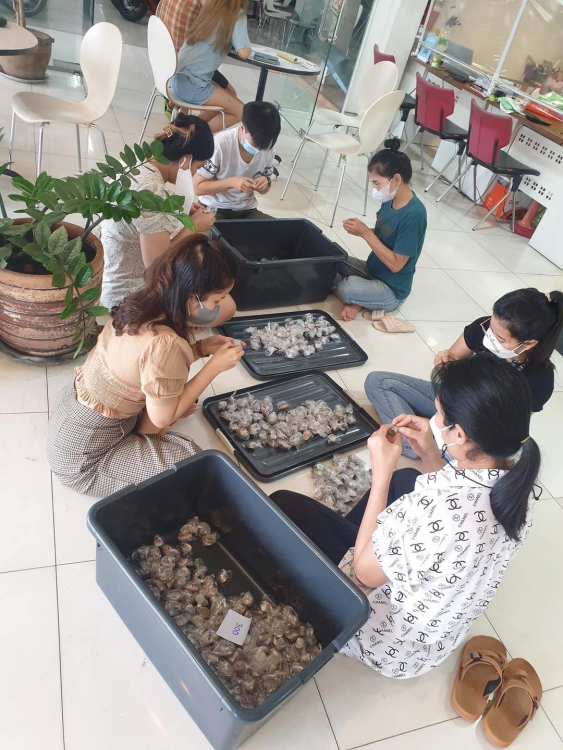
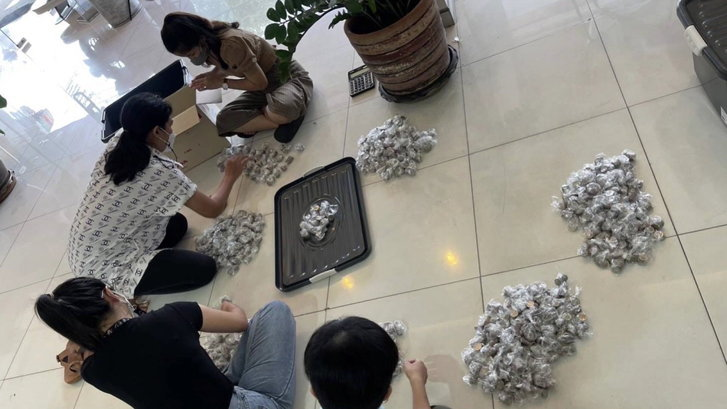
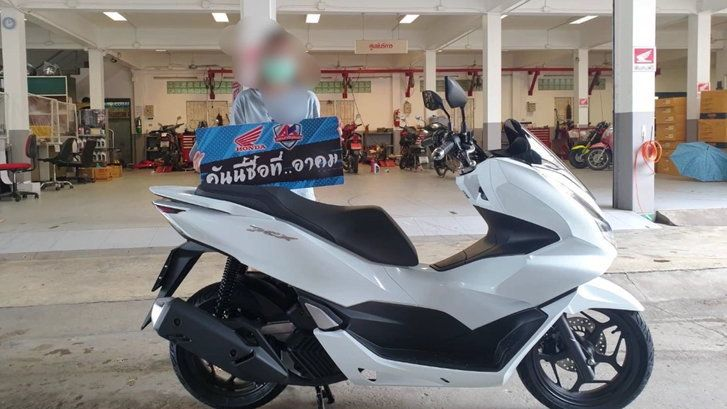
.thumb.png.2da3e19149446c4cfeec30d4b5819710.png)








